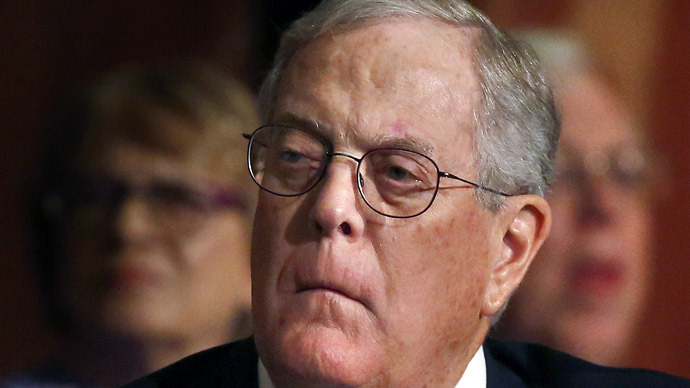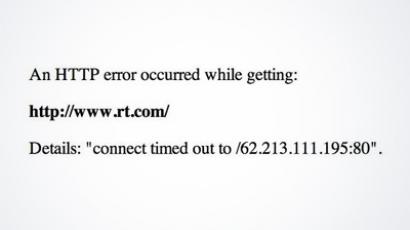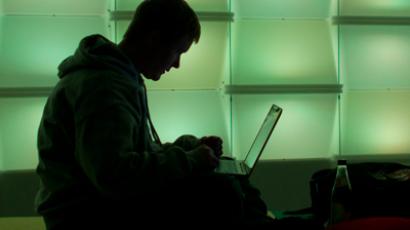Koch Block: Alleged Anonymous hacker charged with shutting down billionaires’ website

A Wisconsin man has been indicted over allegations that he helped the hacktivist group Anonymous briefly shut down two websites in 2011 during a virtual protest waged at billionaire brothers David and Charles Koch.
The Federal Bureau of Investigation claims 37-year-old Eric J. Rosol of Black Creek, Wisconsin participated in a distributed denial-of-service, or DDoS, attack in late February 2011 that targeted the websites of two companies controlled by the Koch’s: Quilted Northern and Koch Industries.
Earlier that month, Wisconsin Gov. Scott Walker announced plans to slash benefits for public workers and bust organized unions across the state. Tens of thousands of demonstrators would rally outside the Capitol Building for weeks during the debate in response, but an action organized by Anonymous — and allegedly involving Rosol — went after Walker’s ties on the Web.
In conjunction with the real life protests outside the State Capitol, Anonymous encouraged demonstrators to use DDoS attacks: a method of essentially over-flooding a computer server with so much traffic that legitimate users can’t get through. Rosol is accused of conspiring with Anonymous by helping the shadowy hacking collective with a DDoS attack waged at two websites, both named by members of the group as targets during a virtual sit-in advertised on the Web in late February.
Anonymous sought to shut-down the online presence of David and Charles Koch, the conservative philanthropists who supported Walker’s initiatives both with their pocketbooks and unmatched political persuasion, after the brothers were linked to assisting with the governor’s agenda that attracted criticism across the country. Days before Anonymous began coordinating the DDoS assault, journalist Ian Murphy went undercover and posed as David Koch during a successful attempt to get Walker on the phone for a candid interview during a time when he stone-walled seemingly all members of the media. The discussion was tape recorded and put on the Web, revealing Gov. Walker quashed hopes of “planting some troublemakers” to discredit the demonstration.
“David and Charles Koch--the billionaire owners of Koch Industries--have long attempted to usurp American Democracy. Their actions to undermine the legitimate political process in Wisconsin are the final straw,” read a Feb. 2011 press release circulated by members of Anonymous.
“Koch Industries, and oligarchs like them, have most recently started to manipulate the political agenda in Wisconsin,” it continued. “The Kochs have helped to fuel the unrest in Wisconsin and the drive behind the bill to eliminate the collective bargaining power of unions in a bid to gain a monopoly over the state's power supplies.”
The Justice Department says Anonymous encouraged members to use a piece of free software to send traffic to the two Koch-affiliated websites in order to shut them down. Quilted Northern was attacked on Feb. 27, and a day later the website for Koch Industries was targeted.
“As a result of the attack, the Web site 'Kochind.com' crashed and was unavailable for legitimate traffic,” the DoJ writes. Although only one website was taken down, Rosol is charged with one count of conspiracy to damage a protected computer and one count of damaging a protected computer — two counts listed under the controversial Computer Fraud and Abuse Act, or CFAA — which could land the defendant a maximum sentence of 10 years in prison and a $500,000 fine.
Several lawmakers in Washington have called for updates to the CFAA in recent months — particularly after the family of late activist Aaron Swartz very vocally blamed federal prosecutors in part for their son’s death, a suicide earlier this year committed before Swartz himself could be tried for computer crimes under the CFAA. Despite this calls for action, though, the latest draft of a CFAA reform bill, reported by RT earlier this week, include updates that will only make sentences must more strict.
.














